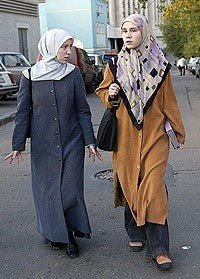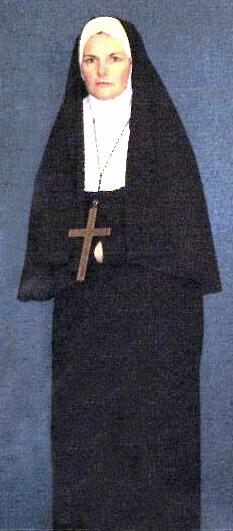Salaam
An update. Another response to the issue.
Shohana Khan’s letter to Sarah Wollaston MP regarding her article on a veil ban
Dear Ms Wollaston,
I write in response to your comment in the Telegraph newspaper dated 15th September 2013, entitled, “Veil debate should be a wake-up call for feminism”.
You make some key claims about the veil, which I felt deserved a little bit of discussion – to highlight that there is more to the other side than ‘nonsense‘, as you claim.
Women are forced to wear it
There is no campaign group of closet ex-veil Muslims, no Facebook page trying to raise awareness of an epidemic of coercive veiling. It’s quite simple - scores of young veil wearing Muslim women, like the ones who had the ban overturned due to the pressure they put on the Birmingham college, wear it out of their own accord. Apart from the fact that not all girls start wearing it at 13 anyway, it is strange that this discussion is not had about straightened hair, makeup or the length of the school skirt, or how across secondary schools in the UK today, 13-year-olds are adopting the ‘beauty ideal’ because they feel they have to. That is if we really want to talk about coercion in how girls dress.
The veil takes away a woman’s equality
As you claim, the fact that a veil wearing woman dresses differently to how men dress, means she is repressed. So the question we must ask is, if a woman dresses differently to a man, does this mean repression?
The fact that dresses, skirts and ladies handbags are not the usual content of a male wardrobe I’m sure does not ring alarm bells for yourself. Difference in dress code between men and women is accepted and does not alert to women being seen as chained to a life of repression. So why would this apply to the dress code of a different community?
The veil inhibits communication
For those who advocate that anyone wearing the veil cannot be communicated with properly, I would imagine would also uphold a total ban of all type of social media, email correspondence or phone communication because these very normal forms of communication that we use today rely on our ability to communicate without seeing the others’ face.
Interaction and community cohesion if one thing we have learnt, is not built by whether you see someone’s face or not, but whether you uphold respect, kindness and good neighbourly qualities in your actions with the wider community. Community tensions exist across the UK, but can the veil honestly be put down as the cause of any of them? As for the issue about identity and security – There is no real conundrum here, Muslim women can meet these needs in a female environment.
The veil makes a woman ‘out of sight’
If we mean women’s physical bodies and faces are ‘out of sight’, then yes there is not any dispute about that. But the bigger question is, is that all we really mean and are concerned about, with regards to the presence of women in society? As that would be very worrying.
The feminist struggle you evoked in the beginning of your comment, from the onset was set upon moving away from the view of women as physical prizes and possessions to the real participation of women in public life. Veil wearing women would fiercely argue that the veil has actually stopped society short from judging them by the way they look, over what they think; enabling them to participate more fully in society.
The truth is, that although Western politicians across Europe have like dominoes one after the other, felt it necessary to come to the saviour of veil wearing Muslim women, Muslim women have not let out any cry demanding they be saved.
However, we know there is a cry – a growing one across Western societies of people who have begun to view Muslims and their values as threateningly averse to the secular liberal norm, even though they are not the only community with ‘different’ practices. We can all sit back and ponder upon how and from where, this cry is being fed and fuelled.
Finally, your concern about the need for a wake-up call for women, I would say is not at all incorrect. A wake up call about the real coercive idea in society which is robbing women of being valued for their mind and their abilities, robbing them of their self-esteem and self-worth, robbing them of real choice about what they want to be, is more than needed. This idea is the corrosive beauty image perpetuated through the media, entertainment, beauty industries that has been proved as plaguing the lives of young women today. Although how you look is perceived to be a choice a woman makes, the very specific image of beauty plastered across magazines, billboards and TV today has built a standard that women young and old, all must aspire to and are measured against.
Campaigners insist that the looking beautiful is ‘empowering’ for women. Only in the same way perhaps as an invisibility cloak over your mind, but if that is the case why is it not worn by men? Such nonsense hides the reality that in cultures where it is not a choice but a compulsion, women have no meaningful power whatever.
We must be bold in resisting those who would allow the beauty image to masquerade as personal freedom. In my opinion, to allow it in our schools harms women by colluding with a view that they should be only physically in sight; that attitude has no place in an open modern society.
Before I end, I confess to borrowing the two paragraphs above from your own piece on the veil that I am responding to. Because to be fair I felt most the points you made about the struggle of women were relevant – you just chose the wrong focus.
It is the idea which last year caused the number of hospital admissions for anorexia to rise by 16%, and the year before this included nearly a hundred five to seven year olds worried about the way they looked, which needs urgent attention. It is this attitude and view, which women are crying out about and want liberating from. It is this attitude and view, not the small piece of cloth a tiny minority of women in the UK wear, which in a society that seeks to liberate women, should have no place at all.
Yours sincerely,
Shohana Khan
Women’s Media Representative
Hizb ut-Tahrir Britain
http://www.hizb.org.uk/current-affairs/shohana-khans-letter-to-sarah-wallaston-mp-regarding-her-article-on-a-veil-ban

 has taught believing men and women to lower their gaze, guard their chastity and maintain modesty. Amongst Muslims, it is normal to avoid approaching women unnecessarily. In western culture, this is something becoming increasingly alien, and Muslim women perhaps feel equally uneasy when in the presence of male strangers with whom they are expected to mingle with, not to mention the stares and impolite reactions that they face on a daily basis. But the notion that they are 'hypersensitive' (I assume this means they are more likely to be offended) is perhaps a stereotype. Those wearing the Niqab are just as diverse as the rest of society and as such, will consist of so many different personalities, backgrounds, levels of faith, education and types of occupation. One cannot judge or expect the same reaction or likelihood of being offended from them just because they have chosen to put on a veil. You can find women wearing Niqab who are very vocal, participating in public debates and lectures, and many often welcome the chance to explain their beliefs to others.
has taught believing men and women to lower their gaze, guard their chastity and maintain modesty. Amongst Muslims, it is normal to avoid approaching women unnecessarily. In western culture, this is something becoming increasingly alien, and Muslim women perhaps feel equally uneasy when in the presence of male strangers with whom they are expected to mingle with, not to mention the stares and impolite reactions that they face on a daily basis. But the notion that they are 'hypersensitive' (I assume this means they are more likely to be offended) is perhaps a stereotype. Those wearing the Niqab are just as diverse as the rest of society and as such, will consist of so many different personalities, backgrounds, levels of faith, education and types of occupation. One cannot judge or expect the same reaction or likelihood of being offended from them just because they have chosen to put on a veil. You can find women wearing Niqab who are very vocal, participating in public debates and lectures, and many often welcome the chance to explain their beliefs to others.

